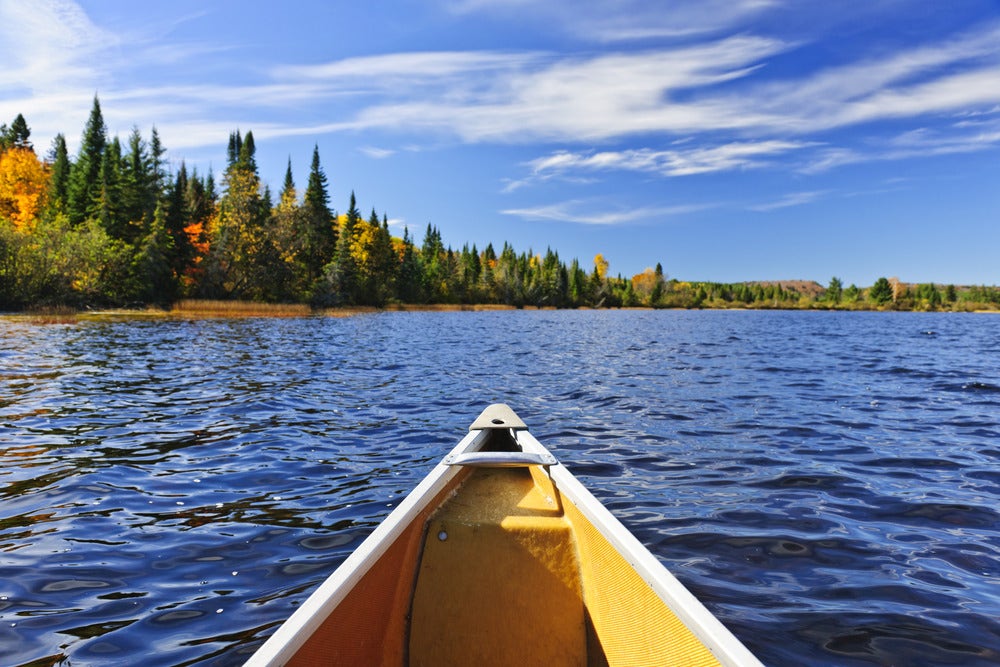Concrete Canoes and SpeedCoaches

Competitive canoe racing is growing. Data and analysis delivered by canoe SpeedCoaches are critical to making boats go faster, even when they are concrete canoes.
When you have Olympic ambitions, data and analysis are critical, regardless of your watersport. Anuar Akchurin knows. He is aiming to compete in the canoe sprint event at the 2028 LA Olympics. As a recent recipient of a NK Sports Grant, Anuar purchased the SpeedCoach OC 2. He is an engineer and knows something about concrete canoes. He sees a need and future for SpeedCoaches in canoe racing, including concrete ones.

Anuar Akchurin talks about the future of canoe racing
Concrete canoes do float
Paddling is just emerging as a collegiate sport. Believe it or not, concrete canoes could be one way that paddling grows at the varsity level. Each year the American Society of Civil Engineers sponsors an ASCE Concrete Canoe Competition. Students gain hands-on practical experience in concrete mix designs and project management as they design, build, and race concrete canoes. Making them float is just part of the challenge. So long as the volume of water displaced by the canoe and its paddlers is heavier than the loaded boat, it will float. Designing them to go fast, in what is called the America's Cup of Civil Engineering, is another matter. And, as rowers know, winning races requires more than the best equipment design. The engineers need to learn to paddle well and hard.
This is where Anuar comes in. When Anuar came to the United States to study, he was already a competitive and committed canoeist from Kazakhstan. His love of paddling is what led him to Florida Tech. He had noticed that many of his favorite competitive athletes trained on the Indian River in Florida, where the university is located. While studying for his Bachelor's Degree in mechanical engineering, he continued to compete in sprint canoeing. One day, when training on the water, he encountered the university's concrete canoe team. Anuar was brought in to coach the team in paddling technique and team building.
Since graduation Anuar works at Bansbach Easylift of North America, a company that has supported his training and racing, he has also remained involved with his alma mater and is President of the American Society of Civil Engineers (ASCE) Florida Tech Student Chapter. In 2024, the regional concrete canoe competition is planned for Orlando, Florida. Winners at the regional level go on to the national competition. Over 200 universities across the United States design, build, and race concrete canoes. In the specifications sheet for the Florida competition, Anuar is going to recommend the use of the SpeedCoach OC as a means for the teams to test designs and improve their paddling skills. Perhaps other engineering students will be inspired to take up competitive canoeing.
Mini laboratory in a boat
Whatever the canoe hull design and material, data and analytics help the boat go faster. Anuar took his new SpeedCoach to the 2023 German Club National Championship. He was racing as a member of the Potsdam Canoe Club in Berlin. Germany is one of the top countries for canoe sprints, toping Olympic medal charts, and this club produces some of the best paddlers. One of the events he was racing in was a doubles or C2. He had never paddled with his partner before, and they had no time to practice together. GPS systems are not permitted during the race, but Anuar used his SpeedCoach OC to tune up their timing and especially their rate during heat preparation. They came in fifth against elite paddlers, a result that Anuar was very pleased with.
The SpeedCoach OC 2 is marketed towards outrigger canoeists, but it is helpful for all paddle sports, including Anuar's preferred boat, the C1. The OC model delivers much of the same data and analytics as the rowing model. Still, the operating system or firmware does not include connections to the EmPowerOarlock, which is unique to rowing. Paddlers talk more about speed, cadence, and glide but also look at splits and the time and distance covered, as rowers do.
Anuar considered other technology choices on the market for paddlers. Sport watches are common, as are paddle sensors. Anuar sees several advantages of the SpeedCoach over the other options. One is its durability. Another is the caliber of its data useful both during and after a workout. Similar to how rowers use the SpeedCoach GPS 2 with LiNK Logbook, Anuar examines each workout, delving into the detail of the available analytics. He says the SpeedCoach is like having a mini-laboratory in his boat.
This is how Anuar will be using his new SpeedCoach:
- Monitor my progress over time, enabling me to make data-driven decisions to optimize my training plan.
- Fine-tune my technique by analyzing the biomechanics of my stroke, allowing me to make adjustments and improve efficiency.
- Set achievable, measurable goals based on my performance data, leading to more effective training sessions and better race results.
Paddlers can also consider adding an impeller, which provides a more accurate speed when paddling in moving water. Impeller speed measures the boat's movement relative to the water, while GPS speed measures the boat's movement relative to the ground.
The potential of competitive canoeing
There is a whole lot to the world of paddling. Indigenous watercraft in the form of canoes and kayaks are found around the world and paddling is one of the most ancient modes of transportation. The International Canoe Federation (ICF) is the paddling equivalent of World Rowing. The ICF lists 15 paddling disciplines on its website, including canoe sprint, dragon boating, kayaking and outrigger canoeing. Kayakers and canoers race 1,000 m, 500 m and 200 m events. Rates are significantly higher than for rowers, with canoes propelled by 100 strokes per minute and kayaks at 200 spm in sprints.
Canoeing became an Olympic sport in 1936, with two disciplines: sprint and slalom. Canoes are raced in the sprint category with either one or two athletes and kayaks are raced with one, two or four athletes. There are an equal number of events for men and women, although the distances raced vary. Slalom events are only raced in canoe or kayak singles. For the Paris 2024 Olympics, the distances raced will be altered to become identical for both genders, and a new event, kayak cross, will be added, replacing the men's and women's K-1 200-metre sprint races. In total, 16 events will be run.
Anuar sees great potential for the sport and for the role of technology and data. Maybe there really will be more SpeedCoaches in concrete and other canoes soon.








